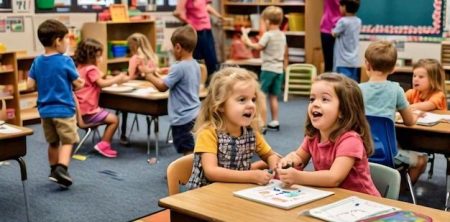Introduction
Social Learning Theory represents a pivotal paradigm in understanding how humans acquire knowledge, skills, and behaviors through social interactions and observation. Developed primarily by psychologist Albert Bandura, this theory challenges traditional behaviorist approaches by emphasizing the critical role of cognitive processes, social context, and vicarious learning in human development.
Historical Context
The emergence of Social Learning Theory marks a significant departure from earlier psychological models that viewed learning as a purely behavioral or stimulus-response phenomenon. Bandura’s groundbreaking work in the 1960s and 1970s introduced a more nuanced understanding of how individuals learn by observing and interacting with others in their social environment.
Theoretical Foundations
Core Principles of Social Learning Theory
Social Learning Theory is built on several fundamental principles that distinguish it from previous learning models:
Observational Learning
Individuals can learn new behaviors by watching others
Learning occurs without direct personal experience or immediate reinforcement
Cognitive processes play a crucial role in interpreting and internalizing observed behaviors
Modeling
Humans tend to imitate behaviors of respected or admired individuals
Characteristics of the model significantly influence the likelihood of behavior adoption
Different types of modeling exist, including:
Live modeling (direct observation of a person)
Symbolic modeling (observation through media, literature, or other symbolic representations)
Verbal instruction modeling
Cognitive Mediation
Learning is not automatic but involves mental processing
Individuals actively interpret, evaluate, and decide whether to adopt observed behaviors
Four key cognitive processes in observational learning:
a. Attention
b. Retention
c. Reproduction
d. Motivation
Mechanisms of Social Learning
Attention Process
The first critical stage in social learning is attention. Not all observed behaviors are learned, and several factors influence an individual’s ability to focus on and perceive specific behaviors:
Factors Affecting Attention
Characteristics of the Model
Perceived attractiveness
Competence and expertise
Social status
Similarity to the observer
Characteristics of the Observer
Personal interests
Cognitive capabilities
Prior knowledge
Sensory capabilities
Contextual Factors
Relevance of the behavior
Complexity of the observed action
Environmental distractions
Retention Process
After attention, the ability to remember and mentally represent the observed behavior becomes crucial. Retention involves:
Cognitive Encoding Strategies
Symbolic Coding
Converting observed behaviors into mental representations
Using language and imagery to store information
Cognitive Organization
Structuring observed behaviors into meaningful patterns
Creating mental frameworks for understanding complex actions
Symbolic Rehearsal
Mentally practicing or visualizing the observed behavior
Reinforcing neural pathways associated with the learned action
Reproduction Process
Transforming mental representations into actual performance requires:
Motor Reproduction Skills
Physical capability to perform the observed behavior
Practice and refinement of motor skills
Gradual improvement through repeated attempts
Self-Regulation Mechanisms
Setting personal performance standards
Self-monitoring of behavior
Adjusting actions based on internal feedback
Motivation and Reinforcement
Motivation determines whether an observed behavior will be attempted and sustained:
Motivational Sources
External Reinforcement
Rewards and punishments
Social recognition
Tangible benefits
Vicarious Reinforcement
Observing consequences for others
Anticipating potential outcomes
Evaluating risks and benefits
Self-Reinforcement
Internal satisfaction
Personal goal achievement
Sense of self-efficacy
Communities of Practice
Theoretical Integration
Communities of Practice (CoP) represent a natural extension of Social Learning Theory, emphasizing collective learning within social contexts.
Key Characteristics
Shared domain of interest
Mutual engagement
Collective knowledge development
Informal learning processes
Organizational Learning
In professional and educational settings, Communities of Practice facilitate:
Knowledge transfer
Skill development
Organizational socialization
Innovation and problem-solving
Applications of Social Learning Theory
Educational Contexts
Classroom Implementation
Collaborative learning strategies
Peer teaching models
Scaffolding techniques
Diverse learning environments
Curriculum Design
Interactive teaching methods
Role-modeling by educators
Experiential learning approaches
Professional Development
Mentorship programs
On-the-job training
Professional networking
Skill acquisition through observation
Psychological Interventions
Behavior modification
Therapeutic modeling
Social skills training
Rehabilitation programs
Contemporary Perspectives
Digital Age Implications
Online Learning Environments
Virtual communities
Social media learning platforms
Global knowledge networks
Expanded modeling opportunities
Technological Mediation
Digital simulation
Interactive learning technologies
Cross-cultural knowledge exchange
Neuroscientific Insights
Mirror Neuron Research
Biological basis of observational learning
Neuroplasticity
Empathy and social cognition
Critical Perspectives and Limitations
Theoretical Critiques
Potential oversimplification of learning processes
Cultural variations in learning
Individual differences in observational learning
Ethical Considerations
Responsible modeling
Potential negative behavioral influences
Media’s role in social learning
Conclusion
Social Learning Theory provides a comprehensive framework for understanding how humans acquire knowledge and behaviors through social interactions. By emphasizing observation, cognitive processing, and contextual influences, the theory offers profound insights into learning mechanisms across various domains.
The ongoing integration of technological advancements, neuroscientific research, and global connectivity continues to expand and refine our understanding of social learning processes.
Future Research Directions
Neurobiological mechanisms
Cross-cultural learning dynamics
Technology-mediated learning environments
Adaptive learning strategies

